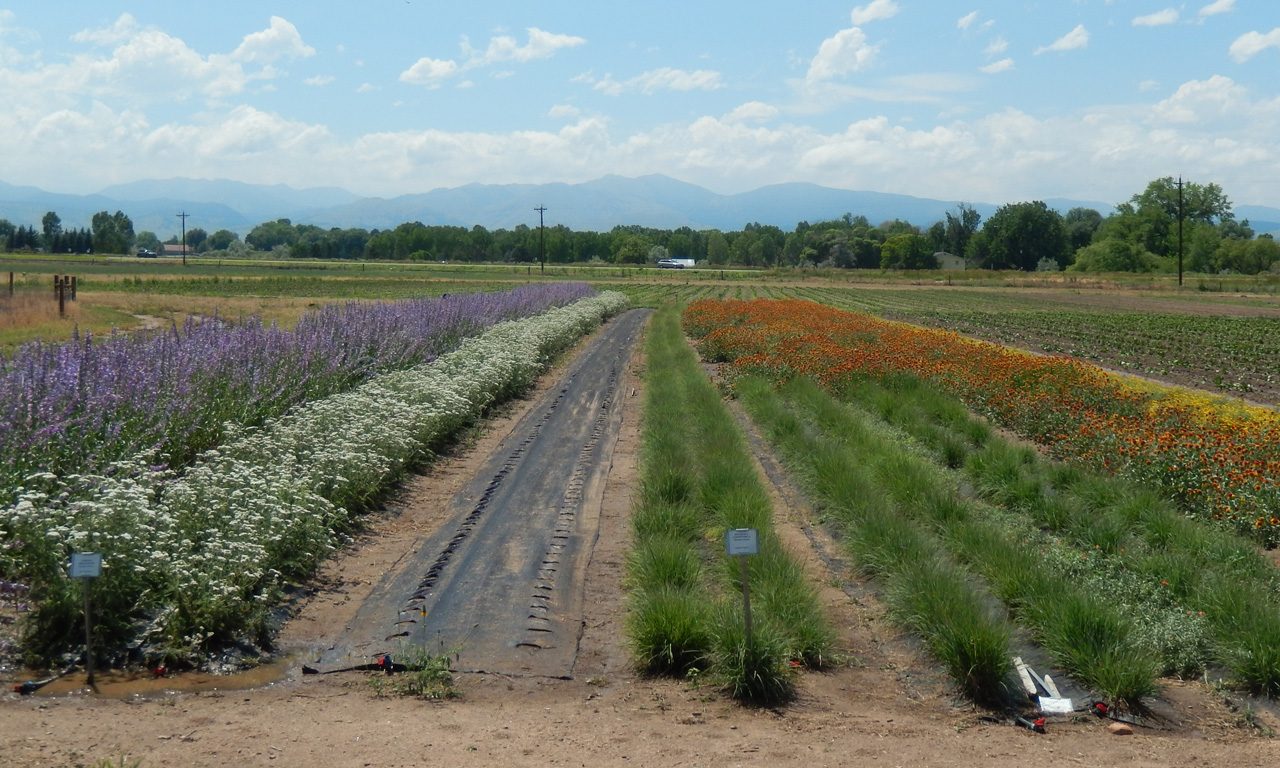The sun sets behind the Flatirons while a soft breeze cools the air. With full seed bags and full hearts, volunteers pick their last seed and head back to their cars on a mid-summer night’s native seed collection.
This is a common occurrence on Boulder County’s public lands during the warmer months. Passionate stewards of local open space lands give their time to harvest native grasses, flowers, berries, and cones so our local restoration projects can be completed with ecotypic (site specific) plant material. In this case, a local ecotype refers to a plant that has adapted to its local environment—the soils, precipitation, climactic extremes, and elevational gradient, among many other factors that have encouraged our plants to thrive through millennia of natural selection.
Our native seed collection effort has grown since the late 1990s and been hugely successful and continues to grow in popularity and need. Often times though, the scale of restoration on county open space exceeds what we can sustainably harvest from the landscape. We cannot secure the amount of seed that is needed to restore our public lands from wildland collections alone, especially in the wake of a natural disaster like a fire or flood. A larger, more targeted effort was needed to increase our access to and volume of native, ecotypic seed. From this need, the Peck Native Seed Garden was created.
The Peck Garden, located along the LOBO Trail (Longmont to Boulder Trail), was established in 2012 and is on the Peck open space in southwest Longmont. About 12 acres of this property is leased to Ollin Farms, an organic market farm, while about a quarter acre of this farm has been turned into a native seed increase field growing about 10 to 12 different species of native wildflowers and native grasses. All of these species were originally harvested from local open space lands by volunteers. Boulder County Parks & Open Space volunteers and the Boulder County Youth Corps installed these plants at Peck Garden. A small and strong group of volunteers maintains this organic garden. Volunteers harvest the seed and often also help to sow our ecotypic seed back into the landscape. This is a full-circle effort through and though and represents the confluence of community involvement with scientifically supported land management practices.
This in-house seed increase undertaking has vastly improved our restoration efforts. We typically harvest between 100 and 150 pounds of seed annually from the Peck Garden. This garden harvest can account for approximately one-third of all the seed we collect in a year, depending on the species we target and Mother Nature’s wildland seed production. By organizing these species into rows, and with irrigation help from Ollin Farms, we can produce large amounts of seed from some of our “work horse” restoration species. These types of plants can establish and persist in the range of soils and elevations found in Boulder County, readily produce viable seed each year, and offer ecosystem services like pollinator forage, wildlife habitat, and soil stabilization. Some of the tried and true work horse species we grow at Peck include (but are not limited to) Blanket Flower (Gaillardia aristata), Prairie Coneflower (Ratibida columnifera), Hairy Goldenaster (Heterotheca villosa), Sideoats Grama (Bouteloua gracilis), and Western Yarrow (Achillea millefolium). Boulder County has used this seed in a variety of restoration projects throughout the county, spanning small-scale projects like trailside seeding or slash pile restoration, to large-scale efforts like flood recovery restoration along the St. Vrain Creek.
Take a walk on the LOBO Trail this spring, or sign up for native seed collection, and see this innovative and productive garden with your own eyes! Peck is, without a doubt, a special place. From June through August you can hear the hum of pollinators tasting the rainbow of the flowers’ nectar. Hawks soar in the sky above your head. Friendly passers-by spark up conversation, as they wonder what’s happening on the other side of the fence. And as the sun sets behind mountains, you can find a group of volunteers canvassing the rows of plants and filling up their seed collection bags with wide smiles on their faces.


